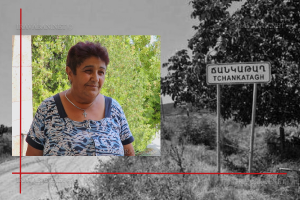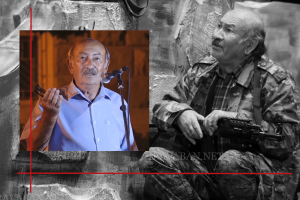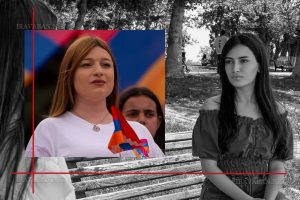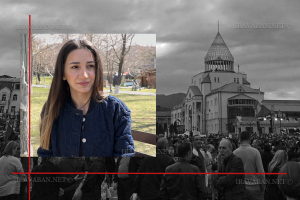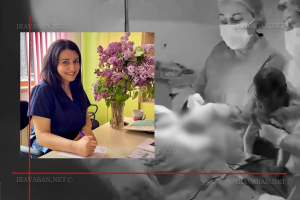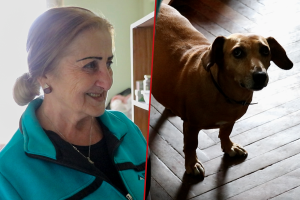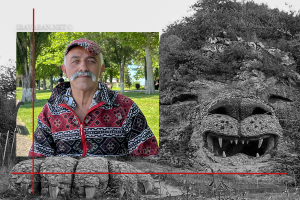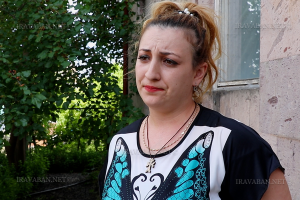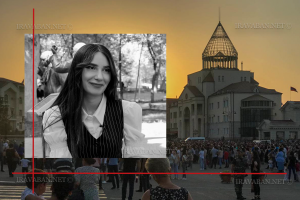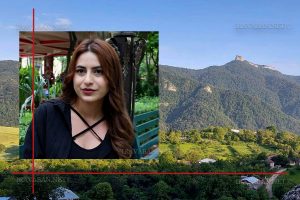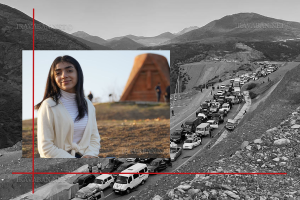“When the war began, I was preparing a report. We were supposed to present a report about the blockade at the university,” Lana Hambardzumyan, who was forcibly displaced from Artsakh, told in the framework of “Artsakh: Armenian Genocide 2023. Stories of Survivors” documentary project.
Lana remembers that the explosion and the resulting smoke were clearly visible from the campus. “The Vice-Rector urged us not to panic, but during the second shot, the university’s alarm signal had already been activated, and we all had to go to the basement and that was how the war started.”
She told that during the siege the problems gradually worsened, initially the complications were not so many. “Agricultural products and food were enough for the capital and the regions, but over time the agricultural products were also finished. When no food of any kind reached Artsakh from Yerevan, everything began to end, there was no medicine.”
Lana remembers that they wondered how they would be able to live in those conditions during the winter, but the siege ended before winter came, with war. “It seems that the war was the culminating end.”
In the first few days, they did not imagine that they would have to move to Yerevan and leave Artsakh.
“When some circumstances occurred, and news spread that those who have cars can leave, on the first day, on 23 September, a large flow began to Armenia, traffic jams all over the capital, they tried to come from the regions, but Azerbaijan blocked the road. People were in a small siege.”
People waited tensely and uncertainly to get fuel, to move, but the fuel came in small quantities, or it didn’t come at all. “It was followed by the explosion on 25 September, my father was also there and from there he told stories that we could not even imagine how a person melts and dies in agony because of the fire.”
On the night of 26-27 September, we left and moved to Armenia. “There were cases when we met people burned by the explosion, whoever was able to drive, were on the road, the food was spoiled, we were hungry for 20-24 hours. We also heard that accidents were happening, people were dying, the closer we got to the Hakari bridge, the more accidents and broken cars were seen. It was also a big stress at that moment, I did not know whether life beyond the bridge continues or not. On the bridge, Azerbaijanis gave water and “biscuits” to the cars where there were children, naturally we didn’t use them, we just crossed the bridge all the way, about a few meters, all the water was spilled, people seemed to be skeptical of the Azerbaijanis “pacifism”.
————————
Iravaban.net seeks help from citizens who will voluntarily agree to translate materials into different languages: Russian, English, French, Arabic, Persian, Turkish, Georgian, Chinese…
You can write to our e-mail address at: [email protected]
To donate for realization of the project: https://iravaban.net/en/become-a-supporter
Armenian Lawyers’ Association is the author of the idea “Artsakh: Armenian Genocide 2023. Stories of Survivors” documentary project of Iravaban.net and is the owner of copyright of the materials created within the framework of the project. In case of using the materials produced within the framework of the project, it is necessary to obtain the written permission of the Armenian Lawyers’ Association.
Details in the video.
Mariam Antonyan

